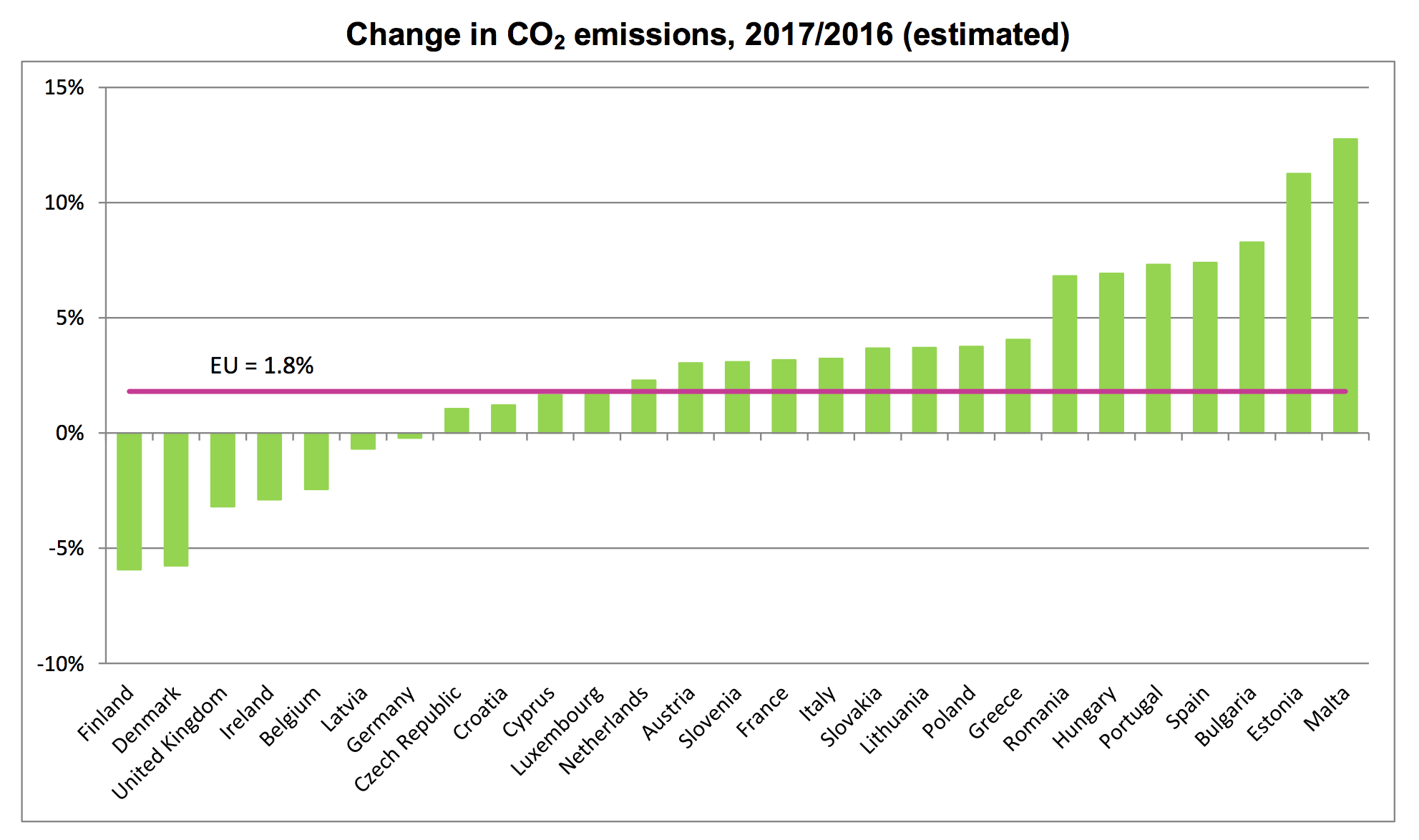Carbon dioxide emissions stemming from fossil fuel use in the European Union rose by around 1.8% in 2017 as compared to 2016, according to the most recent estimates from Eurostat.
Despite fossil fuel derived carbon dioxide emissions as a whole rising in the European Union during 2017, the split across countries was by no means even — with Malta seeing a 12.8% rise in fossil fuel derived carbon dioxide emissions, and Finland seeing a 5.9% drop, for example.
Altogether, though, the new data does seem to suggest that the European Union isn’t doing anywhere near enough to reduce greenhouse gas emissions — anywhere near enough if extreme anthropogenic climate weirding and warming is to be avoided, that is.
Here’s more from a press release (via Green Car Congress): “CO2 emissions account for around 80% of all EU greenhouse gas emissions and are influenced by factors such as climate conditions, economic growth, size of the population, transport, and industrial activities.
“According to Eurostat estimates, CO2 emissions rose in 2017 in a majority of EU Member States, with the highest increase being recorded in Malta (+12.8%), followed by Estonia (+11.3%), Bulgaria (+8.3%), Spain (+7.4%), and Portugal (+7.3%).
“Decreases were registered in 7 Member States: Finland (-5.9%), Denmark (-5.8%), the United Kingdom (-3.2%), Ireland (-2.9%), Belgium (-2.4%), Latvia (-0.7%), and Germany (-0.2%).”
While the drops in question noted just above certainly aren’t something to be considered unwelcome, they also certainly aren’t anywhere near enough to reduce greenhouse gas emissions to any truly notable degree. Not on the timescale needed to limit the growing changes threatening to make much of Southern Europe uninhabitable.
